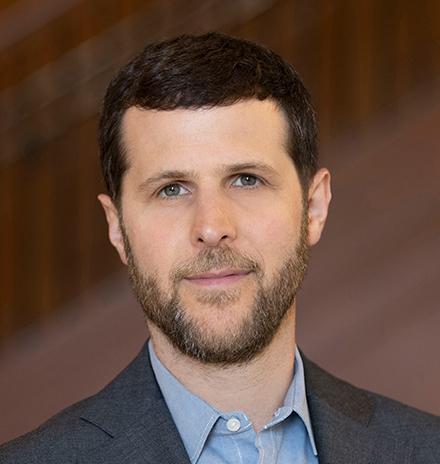Addressing the climate crisis must involve changes from the top down (through laws and investments) and from the bottom up (individual beliefs and actions). A recent study presents insights into how behavioral science can promote climate action across a global audience; it was conducted by Madalina Vlasceanu, Assistant Professor of Environmental Social Sciences at Stanford; Joseph B. Bak-Coleman, Collective Behavior Scientist at the University of Konstanz’s Centre for the Advanced Study of Collective Behaviour and Affiliate at Harvard’s Berkman Klein Center; Kimberly C. Doell, Environmental Collective Behaviour (ECo) Group at University of Konstanz Centre for the Advanced Study of Collective Behaviour; and over 250 behavioral scientists, including Amit Goldenberg, HBS Assistant Professor of Business Administration and member of D^3’s Digital Emotions Lab.
The research, “Addressing Climate Change with Behavioral Science: A Global Intervention Tournament in 63 Countries,” was a collaboration among 258 scientists from around the world who explored intervention methods likely to change climate beliefs and actions. The “megastudy” crowdsourced 11 interventions among researchers and used 59,440 participants from 63 countries to test their impact on four key outcomes:
- Belief in climate change
- Support for climate mitigation policy
- Willingness to share climate mitigation information on social media
- Support for tree-planting projects
The study discovered interventions with limited effectiveness on changing climate beliefs and behaviors, which are highlighted in the insights below. However, overall it found that there is no single successful intervention, and positive impact may depend on audience characteristics, particularly nationality.
Key Insight: Reducing Psychological Distance Boosts Climate Change Beliefs
“Climate change beliefs were strengthened most by decreasing the psychological distance of climate change.” [1]
The study found that interventions that brought climate change “closer” to people’s daily lives were more effective in enhancing belief in climate science. By reducing the psychological distance—making the issue feel more immediate, relevant, and personal—the intervention increased belief in climate change by 2.3% among participants.
Key Insight: Future-Oriented Messaging Drives Policy Support
“For climate policy support […] the intervention with the largest average effect was writing a letter to a member of the future generation, which increased policy support by 2.6%.” [2]
The team’s research studied the “letter to the future” intervention, where participants wrote letters to be read 25 years in the future by a “socially close child,” describing actions the participants took to mitigate climate change. This prompted participants to reflect on how their present actions would impact future generations.
Key Insight: Negative Emotion Messaging Promotes Information Sharing
“Willingness to share climate change information on social media was increased most by inducing negative emotions through “doom and gloom”–styled messaging about the consequences of climate change.” [3]
The study also evaluated the impact of evoking negative emotions—particularly fear and urgency about climate consequences—on participants’ willingness to share climate-related information. This “negative emotion” intervention achieved a 12.1% increase in participants’ intent to share information on social media.
Key Insight: Effort-Intensive Actions Are Hard to Motivate
“For the higher effort behavior, however, interventions appeared to uniformly reduce tree planting across all levels of initial belief.” [4]
The study’s findings noted a crucial challenge: while some interventions—such as decreasing psychological distance, writing a letter to a member of a future generation, and sharing information on social media—could encourage simple, low-effort climate actions, none effectively increased participation in a more demanding behavior, such as tree-planting. In fact, some of the same interventions, plus messaging around working with fellow citizens to address climate change, appeared to reduce willingness to engage in tree-planting, a high-effort task.
Why This Matters
For corporate executives and policymakers committed to a sustainable future, this research by Vlasceanu and colleagues provides valuable guidance on fostering climate action across diverse audiences. As mentioned above, the study suggests that different climate-change interventions should be tailored and targeted based on audience characteristics, for example, country, political ideology, gender, age, socioeconomic status, income, education, and belief in climate change. Corporate executives can learn from this study what framings they might use to best encourage consumer buy-in on their company’s climate-change initiatives. That said, the small effects the study noted—even in populations with overall high levels of belief in climate change and support for policy changes—suggest that bottom-up change might be difficult to achieve, so focusing on top-down change should be a priority. This study, for policymakers, should make it clear that focusing on policy is crucial for a sustainable future climate.
References
[1] Vlasceanu, Madalina, et al., “Addressing Climate Change with Behavioral Science: A Global Intervention Tournament in 63 Countries”, Science Advances (February 7, 2024):1-19, 5.
[2] Vlasceanu et al., “Addressing Climate Change with Behavioral Science: A Global Intervention Tournament in 63 Countries”, 3.
[3] Vlasceanu et al., “Addressing Climate Change with Behavioral Science: A Global Intervention Tournament in 63 Countries”, 5.
[4] Vlasceanu et al., “Addressing Climate Change with Behavioral Science: A Global Intervention Tournament in 63 Countries”, 5.
Meet the Authors

Madalina Vlasceanu is an Assistant Professor of Environmental Behavioral Sciences in the Environmental Social Sciences Department of the Stanford Doerr School of Sustainability, and the director of the Stanford Climate Cognition Lab. Professor Vlasceanu is also a committee member of the Psychology Coalition at the United Nations, the Society for Personality and Social Psychology United Nations, and the International Panel on the Information Environment. She obtained a PhD in Psychology and Neuroscience from Princeton University in 2021 and a BA in Psychology and Economics from the University of Rochester in 2016. Prior to Stanford, she was an Assistant Professor of Psychology at New York University.

Joe B. Bak-Coleman is a collective behavior scientist at the Center for the Advanced Study of Collective Behavior in Konstanz, Germany. Before this role, he was an associate research scholar at the Craig Newmark Center for Journalism Ethics and Security at Columbia University and a computational social scientist. He earned his Ph.D. in ecology and evolutionary biology at Princeton University in 2020, working with Iain Couzin and Dan Rubenstein, and recently completed a postdoctoral fellowship at the University of Washington Center for an Informed Public.

Dr. Kim Doell is a neuroscientist dedicated to understanding human behavior and decision-making to address climate change. She has a dual degree in psychology and neurobiology from the University of Toronto and a PhD in neuroscience from the University of Geneva. She has worked with leading scholars at New York University and now co-leads the International Collaboration to Understand Climate Action at the University of Vienna. In 2024, she founded the Environmental Collective Behaviour (ECo) Group at the University of Konstanz.

Amit Goldenberg is an assistant professor in the Negotiation Organization & Markets unit at Harvard Business School, an affiliate with Harvard’s Department of Psychology, and a faculty principal investigator in D^3’s Digital Emotions Lab. His research focuses on what makes people emotional in social and group contexts, and how such emotions can be changed when they are unhelpful or undesired. He is particularly interested in how technology is used for both emotion detection and regulation.
